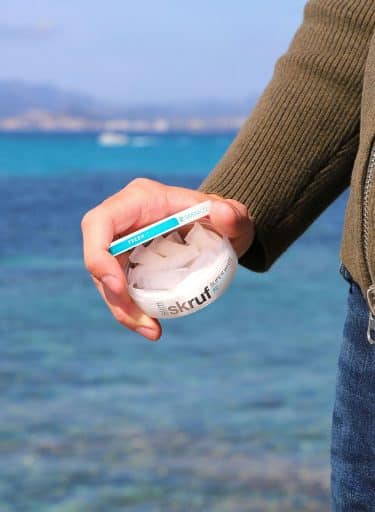The new Premier League season starts this weekend, and many people will get back into their weekly routine of watching, listening to, or reading about our teams and how they’re doing. For many people, this routine includes obsessively reading statistics to understand how their team is using tactics or strategy to improve their game, learning about players and their history with injuries and or contracts – predicting if and when they might leave the team on loan or be sold on. Maybe even keeping tabs on other players in the league, to see if they might be bought to enhance your own side, or to make a fantasy football swap at just the right moment.
In the skeptical community, we often see two camps of people: those who are fascinated by the sense of community and camaraderie of football, akin to a religion without the mythology; and those who deride the game as “sportsball”, complaining about any mention of the game and its popularity.
But skeptics ought to pay attention to football – not necessarily because of the ins and outs of the games themselves, but because we can learn about new trends, fads and pseudoscientific claims by engaging with sport, given the influential role sport plays in society.
One particular fad that is hugely popular in professional football, but relatively still unknown outside of it: snus. Snus is a tobacco-based product where dried tobacco leaves are powdered and packed inside a small pouch that looks like a tea bag. It’s taken by placing the teabag under the top lip where it’s in direct contact with the mucus membranes of the mouth and gums and kept in place from 30 minutes to two hours. It provides a steady release of nicotine into the blood stream. Snus is Swedish in origin, and it’s been around for a good while. It was first invented in the 1600s. But the popularity has risen recently, and American versions were first produced in the 1990s.
In Sweden, the numbers of people smoking has declined and some attribute this to availability of product like snus. Snus, people say, is safer than smoking. It can be used as an alternative way of scratching the nicotine itch, in people with nicotine addiction. And while research is still in relatively early stages, it’s probably true that smokeless tobacco pouches are considerably safer than inhaling cigarette smoke directly into your lungs. The research seems to back that up. There’s evidence of increased risk of cancer, cancer mortality and cardiovascular problems among snus users compared to non-tobacco users, but it’s at a smaller level than the risk for smokers. So as a smoking cessation tool, maybe it has some use.
But in the UK, there is an issue within professional football of users who are taking snus, or the tobacco-free nicotine pouch alternatives, for reasons other than smoking cessation. The use of snus in football is the subject of a comprehensive research project from Loughborough University – a leading university when it comes to sports science –commissioned by the Professional Footballer’s Association, the PFA.
Loughborough’s research was conducted among two populations of people using two methods. They interviewed 16 back-room staff from a range of football clubs, predominantly from the Championship (England’s second division) and League One (England’s third division) but a few also from League Two (fourth division) and the Premiership (top division). The subjects held roles in managing player wellbeing or medicine, and they were asked about perceived prevalence of snus, and player behaviours, performance and health impacts, and the level of support they required.

The research also included an anonymous online survey for professional footballers asking questions around awareness of and level of education about snus; the prevalence, frequency, timing, and type of use; motivations for use/non-use and the perceived effects of use and withdrawal; and the player’s likelihood to quit.
The survey included 649 eligible participants from the men’s game, 31% from the Premier League, 22% from the Championship, 25% from League 1, and 17% from League Two, with an average age of 21. Meanwhile, 51 women were included (the women’s game has substantially fewer professional players currently), all from the Women’s Super League, with an average age was 26.
The surveys found a prevalence of snus usage of around 20% – meaning across both male and female professional footballers, around one in five players admitted to using snus. Additionally, a further one in five said they’d tried snus at least once.
Given that there eleven players per team, that means two are likely to be snus users in any given game. Add in the nine substitutes on the bench, and across both teams there are likely to be eight snus users per game.
As the researchers point out, that may even be an underestimate. Although the survey was anonymous, people tend to be worried about their responses being attributable to them or their team, especially when it comes to taboo topics. The interviews with back-room staff suggested a much higher number, with estimates that ranging from 50% of players, to as high as 75%.
In the survey, only 115 male players and 11 female indicated their reasons for using snus. Of them, more than 90% of respondents said they weren’t taking nicotine pouches as an alternative to smoking cigarettes – so this isn’t about smoking cessation. The vast majority of respondents said they were taking the pouches to help with relaxation, manage stress levels, and to enhance mental readiness.
Nicotine certainly can help with relaxation. It can also help with some mental acuity, and there’s evidence it can enhance memory. It can also act as an appetite suppressant, which some athletes find beneficial for maintaining their goal weight. However, the benefits don’t really outweigh the negatives. Reducing appetite might be useful for weight maintenance, but it’s not great for the nutritional loading which can be required before a game.
Similarly, while aiding relaxation in a very high stress environment like professional football might seem like a great thing, reliance on snus for that relaxation can be unhelpful. One staff member interviewed pointed out that players find nicotine pouches useful after an evening game, where players might be hopped up on caffeine and loaded with adrenaline from the game, and can find it hard to bring themselves down sufficiently to sleep well. However, nicotine is a stimulant, and it has negative effects on sleep quality. And sleep is crucial for recovering even the microdamage a player has after a game, let alone any injuries they might have picked up.
The research revealed there is a key social component in taking snus pouches. Respondents said they used it socially when drinking with friends, or that they felt like they were missing out when not taking the pouches, which encouraged them to try it in the first place. Most troublingly, a significant number of respondents showed signs of addiction. 53% of men and 73% of women showed at least on sign of dependence in the survey. This makes sense – we know that nicotine is highly addictive.

Unfortunately, according to the evidence, the negative side effects of nicotine far outweigh the positives – while the jury is still out about how much cancer risk is increased when taking oral nicotine pouches, we do know nicotine can have an impact on lots of parts of our bodies. A Cochrane review from 2018 lists nine key side effects of nicotine replacement therapies, including headache, dizziness, nausea, gastro-intestinal symptoms, sleep problems, non-ischemic palpitations, skin reactions, oral reactions, and hiccups. Some of those might sound relatively minor, but for elite athletes whose health is constantly optimised to give them that edge for play and maintaining fitness, it can add up to something quite significant.
On top of that, it’s not clear from the research whether players are taking tobacco-free nicotine pouches, or genuine snus – the tobacco containing version of the product, which is not legally available to buy in the UK. Tobacco, of course, is likely to have other side effects, so it’s not always easy to tease out the differences with smokeless tobacco.
What is the answer here, for the professional game? The truth is, clubs might be reluctant to ban the use of snus or issue fines to players taking it because as one interviewee commented: “Our old sporting director put a fine on it, so if anyone was spotted with snus in the training ground, it was a week’s wages and people got done for it. But all that happens the players just protected each other. So if they saw it lying around, they picked it up and got rid of it because the majority of them took it.”
Instead of outright bans, a better approach would be to normalise conversations around stopping snus cessation, and to offer players education tools and support for coming off snus. And, of course, working to address those reasons players admitted to taking the drug – if so many say they find it useful for managing the stress associated with the game, it might be time to invest in other stress management processes, and teaching players other relaxation techniques.



